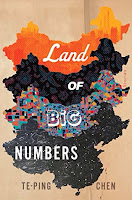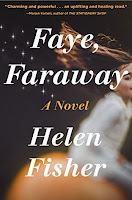My Rating: 5 stars
A few years ago, I had read author Kate Quinn's The Alice Network and absolutely loved it – to the point that both the story and its characters continued to stay with me for quite some time afterwards. Unfortunately, I didn't get the chance to read Quinn's follow up novel The Huntress (which I plan to rectify at some point) – which is why, when I was given the opportunity to read her latest release, The Rose Code, I jumped at the chance to do so, prioritizing it ahead of most of my March reads, despite the fact that, at 656 pages, I knew it would take me some time to get through. Of course, given how much I enjoyed Quinn's previous work, I went into this one with high expectations and now, after having finished, I can say with certainty that it definitely didn't disappoint. One of the things I loved about The Alice Network were the strong female protagonists at the center of the story – indomitable women from different walks of life (with distinctly different personalities and flaws), who are brought together in unique ways to support the war effort. This time around, the story involves 3 women who are recruited to work at Bletchley Park, a mysterious estate in the British countryside that was later revealed to be one of the main Allied code-breaking centers during WWII.
Osla Kendall is a vibrant young debutante who seems to have everything her heart desires – wealth, beauty, a good education, a handsome boyfriend, etc. – yet she longs for one thing that had been elusive thus far: the desire to prove herself as a woman with talent who should be taken seriously rather than constantly written off as a "silly" society girl. It is this desire that motivates Osla to join Bletchley Park, where she hopes to use her fluency in languages, particularly in German, to help translate intercepted messages and contribute to the war effort on behalf of her country. Mab Churt is a girl born into poverty whose impervious and determined nature helped her survive multiple hardships early on in her life. Hoping to bury her past unpleasant experiences and create a better life for herself as well as her little sister Lucy, Mab joins BP hoping to find a socially advantageous husband while at the same time, putting her self-taught skills to good use. After joining BP, both Osla and Mab end up billeting at the home of Beth Finch, a shy 24 year old who, up to that point, had been living under her strict, domineering mother's iron fist – after a lifetime of being told that she is "slow and useless" and therefore destined to forever remain under her mother's thumb, doing her bidding, Beth does not dare believe herself to be anything but incapable of survival outside of her home's four walls. When Osla and Mab help Beth discover that she actually has a brilliant knack for solving the most difficult puzzles in a short amount of time, she also ends up joining BP, becoming one of the facility's very few female cryptanalysts. As these three women become close friends and colleagues, they encounter numerous challenges in their work, with the biggest one being the requirement to abide by an unbreakable oath of secrecy – an oath that tests the limits of their friendship and ultimately tears them apart..
In a bit of a unique narrative format, the story alternates between the perspectives of each of the 3 main characters as well as 2 different timelines spanning within the same decade. The story kicks off in 1947, with the war over and a feverish joy in the air over the imminent royal wedding between Princess Elizabeth and Prince Philip. But not everyone has a reason to celebrate, as is hinted at when we are introduced to the 3 former BP colleagues whose fates took dramatically different turns after the war. We are then taken back to 8 years ago, in December 1939, and from there, the story unfolds between two alternating timelines that ultimately converge into a final act that is both compelling and explosive. Unlike both of Kate Quinn's previous novels, which were more straightforward in terms of the role of her female protagonists in espionage, this one takes a slightly different approach by focusing on the breakdown of encoded messages intercepted from enemy forces during the war – a subject not often covered in stories about this time period. I'm not much of a math or science person and I will admit that a lot of the technical jargon in the book went way over my head, but because of the way the story was written – the way Quinn was able to seamlessly weave both the technical and historical elements into a compelling story that felt both atmospheric and approachable – made this such a refreshing read for me, one that opened my eyes to a different and intriguing aspect of the WWII time period that I'm curious to learn more about. This is actually one of the things I love about well-written historical fiction – its ability to take historical events / people / topics, etc. and make them both approachable and accessible to people like me who probably would not engage otherwise due to difficulty in approaching the content.
One of the things that had really stood out to me with The Alice Network was the way Quinn wrote her characters, which I found easy to connect and resonate with, even though the world that the characters inhabited were so vastly different from my own. The same can be said of the characters in The Rose Code, except this time around, I felt like I was able to connect with these characters (Osla, Mab, and Beth) on a much deeper level, despite the fact that the time period and the world I live in right now is so different. I love books with well-developed characters that you can't help but resonate with on some level – this book absolutely fit that bill.
This is a novel I definitely recommend, especially for historical fiction fans. Also, I didn't intentionally plan it this way, as I don't typically read based on theme, but this one turned out to be a perfect read for March, with it being Women's History Month. What a wonderful way to celebrate the importance of women's contributions throughout history, both here and around the world!
Received ARC from William Morrow via NetGalley.









